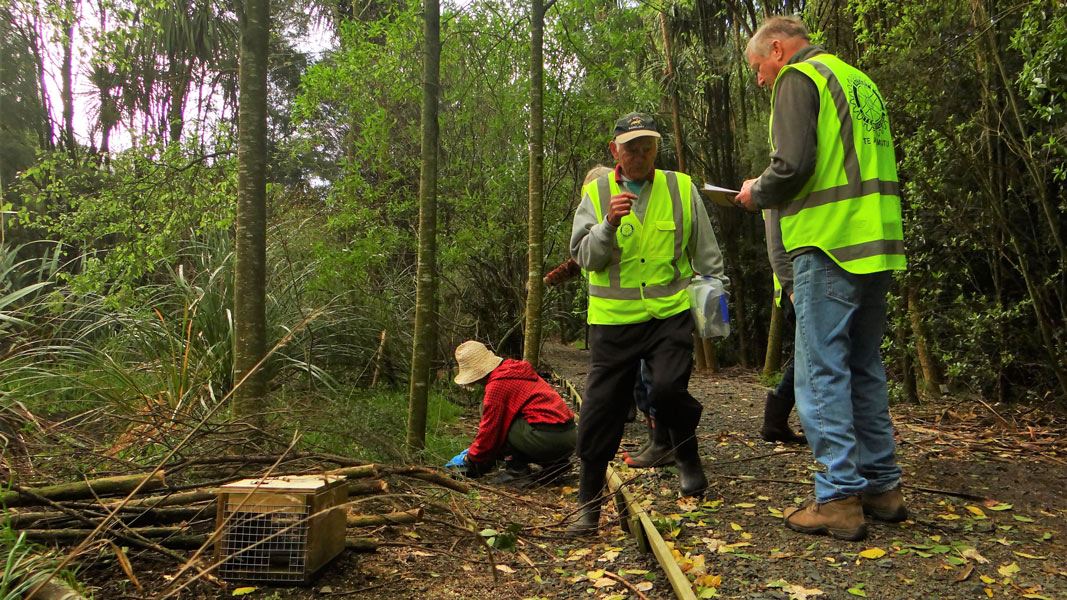Archived content: This media release was accurate on the date of publication.
Date: 08 September 2020
Restoration work at one of the country's most important peat lakes complexes has gained a financial boost, with confirmation of a Community Fund (CF) grant to the National Wetland Trust.
The National Wetland Trust has a long-term presence at Rotopiko/Lake Serpentine, a complex of three, small peat lakes near Ohaupo in Waipa district.
The trust works with a range of partner organisations—including the Department of Conservation, Waipā District Council, NZ Landcare Trust and Waikato Regional Council—to create a showcase for wetland conservation where unique associations of plants and animals can be experienced by visitors and provide opportunities for education and research.
Trust Executive Officer Karen Denyer says the $29,350 from the Community Fund is tagged for several different work aspects at the 41-hectare site, including predator control and exclusion, revegetation planting, bat and bird monitoring, project management and volunteer support.
The funded work is part of the trust's renewed five-year plan for Rotopiko and will continue the conservation momentum at the site.
"This sort of stuff never stops – it's like home maintenance," Karen Denyer says. "The little bits we do now will save a lot of pain in the future, and this funding will help us lock in the gains."
Karen Denyer says the funding will hopefully confirm the presence of a long-tailed bat population at Rotopiko. Bat boxes were voluntarily installed by Te Awamutu company Treelands at several locations at Rotopiko, and monitoring could reveal whether those are being used.
The trust had planned to do bat monitoring at the site in autumn this year, but it could not go ahead as intended because volunteers and experts were unable to visit Rotopiko during COVID-19 Alert Level 4 restrictions.
The COVID-19 closure also resulted in a spike in mice numbers at Rotopiko as monitoring and control couldn't be carried out on the regular cycle. The CCF grant will allow for a "catch-up" on mice detection and control, Karen Denyer says.
Funded weed control work at the site will focus on suppressing some of the highly threatening species—such as tradescantia and recently discovered royal fern—which crowd out native species, some of which have been replanted as part of the trust's long-term efforts at Rotopiko. The CCF funding will also ensure volunteers can carry out their work safely, with materials, protective equipment and the modern essential of hand sanitiser covered by the grant.
DOC's Waikato District Operations Manager Ray Scrimgeour says the trust's long-term commitment to Rotopiko reflects a common theme in conservation—that success can take time.
"Conservation gains at areas like wetlands can be a slow process, but what we do see is that every little bit counts.
"Through its on ongoing efforts, and with the contribution of volunteers who give their time, the trust is doing some great work which DOC has supported through this funding."
Contact
For media enquiries contact:
Email: media@doc.govt.nz
